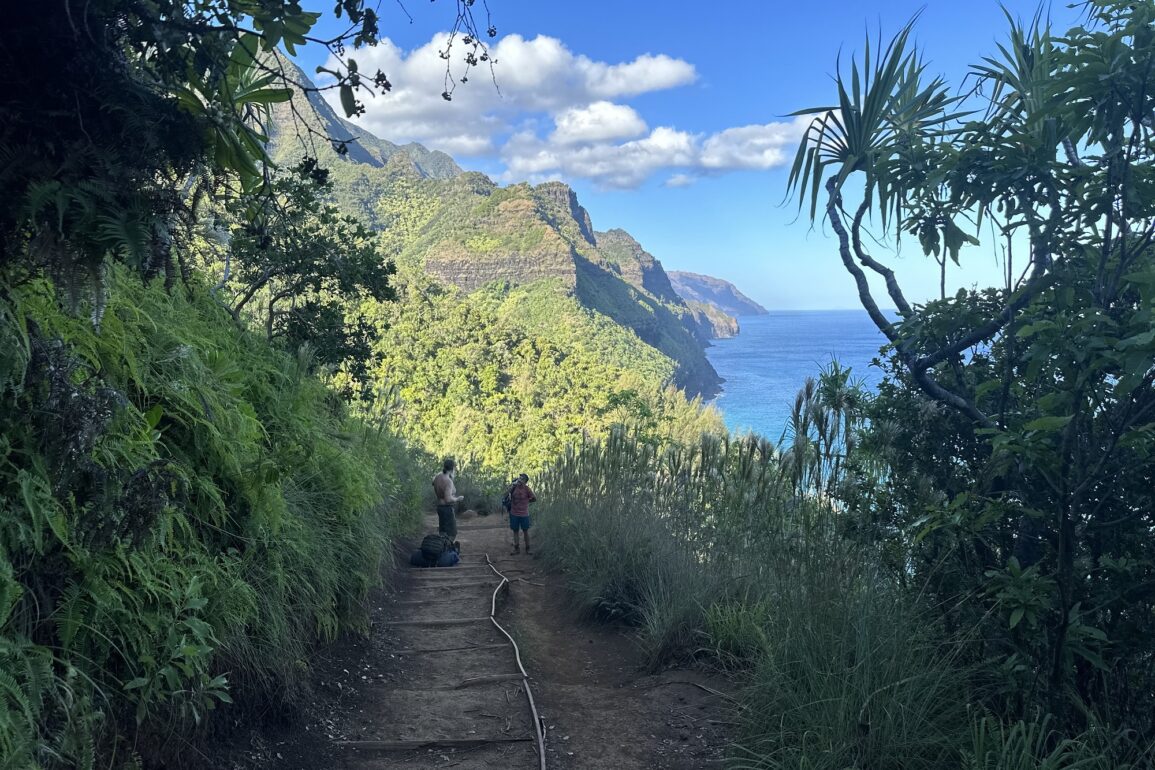September 6, 2024
The Department of Land and Natural Resources (DLNR) Division of State Parks (DSP), in collaboration with the Hawaii Department of Health (DOH), has closed the entire Kalalau Trail on Kauai’s Na Pali Coast due to an outbreak of the highly contagious norovirus. The closure, effective immediately, spans the entire trail from Kee Beach to Kalalau Beach, impacting one of Hawaii’s most famous backpacking routes.
To protect public health, the closure is expected to last until at least September 19. During this time, all comfort stations along the trail are undergoing thorough cleaning and disinfection, with additional sanitation measures implemented at Haena State Park and Kee Beach.
The outbreak has sickened dozens of hikers, with more than 40 individuals reporting symptoms such as severe vomiting, abdominal cramps, fever, and diarrhea. Norovirus was confirmed as the cause, affecting individuals who had not directly interacted with each other, indicating the spread through contaminated surfaces or water sources. A DOH team is currently in Kalalau collecting environmental samples, including water and soil swabs, to assess the ongoing risk of transmission.
DLNR officers from the Division of Conservation and Resources Enforcement (DOCARE) have been deployed to the Kalalau, Hanakoa, and Hanakapiai areas to evacuate any remaining hikers, both permitted and unpermitted. Law enforcement will also be stationed around the clock at the Kalalau Trailhead at Kee Beach to prevent unauthorized entry. According to DLNR, initial efforts by DOCARE officers on Wednesday resulted in about 40 campers being notified of the closure, with two individuals cited for not having proper hiking permits.
The Kalalau Trail is not the only popular hiking destination to face norovirus outbreaks. In recent years, the Appalachian Trail, Havasu Falls in Arizona, and the Grand Canyon have all been affected. The highly transmissible virus is challenging to contain in remote areas with limited sanitation, making trails and backcountry campsites hotspots for such outbreaks. For instance, in 2022, the Grand Canyon National Park backcountry saw its largest recorded gastroenteritis outbreak, with over 200 hikers and rafters falling ill, most likely from norovirus.



